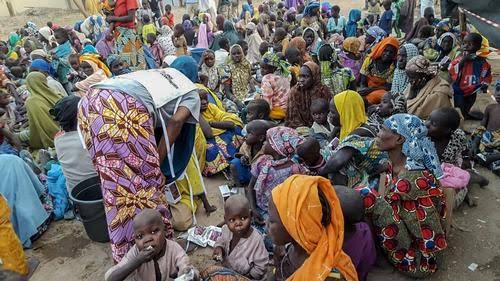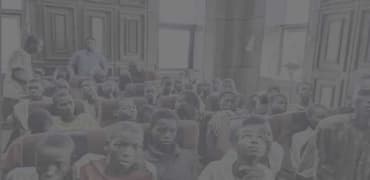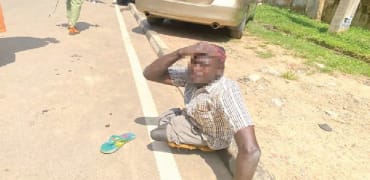Desperate Struggles: How Borno’s Refugees Are Battling Survival in Kano’s Shadows
Desperate Struggles: How Borno’s Refugees Are Battling Survival in Kano’s Shadows
By Achimi Muktar
Under the scorching sun of Kano’s Hotoro district, a community of displaced souls fights a silent battle for survival. Their stories, heart-wrenching and resilient, paint a grim picture of life after fleeing the horrors of Boko Haram insurgency in Borno State.
Shafa’atu Bello, once a thriving livestock farmer in Baga, now scavenges for leaves to feed herself and her sick child. Her life was upended in 2014 when Boko Haram’s reign of terror forced her to flee her home.
"We Ran for Our Lives"
“Three armed men came into my room at night,” Shafa’atu recounts, her voice trembling. “They sat beside me, demanded money, and threatened to rape me. The next morning, we fled to Kano, leaving everything behind.”
But even in safety, the struggles persist. Her husband divorced her, taking three of their children, and left her with an infant. “For three days, we have been surviving on leaves,” she shares, holding out the meager foliage that sustains her family.
Life in Limbo
Shafa’atu is one of hundreds of displaced persons eking out a living in Hayin Da’e, a settlement in Hotoro. With no official IDP camps in Kano since 2015, families like hers squat in rented spaces or with relatives, relying on sporadic aid from NGOs like the Red Cross.
Sani Baga, a community leader, says over 500 households are crammed into the settlement, living in dire conditions. “We lost everything in Baga. I was a businessman; now I can’t even afford food. Many of our children can’t go to school because we can’t pay fees.”
"From Farmers to Beggars"
For Muhammad Sani, a once-successful farmer turned wheelbarrow pusher, the indignity of begging for survival weighs heavy. “In Baga, I harvested hundreds of bags of maize and beans. Here, I push wheelbarrows to feed my family. Five of my six children have dropped out of school because I can’t afford their education.”
Lawan Musa shares a similar fate. Once a prosperous farmer, he now hauls water and cares for 12 dependents. “We left behind food that could last a year, only to starve in Kano. Yesterday, we slept on empty stomachs.”
A Generational Crisis
The challenges are mounting. Parents struggle to feed their families, while children grow up without education or stability. Zara-Jidda Ibrahim, a widow from Monguno, now depends on her son-in-law to support her five children. “Boko Haram took everything from us. My husband died, and we fled here. My son-in-law is our only lifeline.”
Forgotten by the System
While the Borno State government focuses on resettling IDPs within the state, thousands living in Kano feel abandoned. Officials claim no formal notification has been received about IDPs in Kano, leaving families like Shafa’atu’s to fend for themselves.
Despite this, hope lingers. The Borno government has resettled over 287,000 displaced persons since 2015. But for those in Kano, survival remains a daily fight.
“I beg for food,” Shafa’atu says. “When I find nothing, my children and I sleep hungry. We watch them cry because there is no help. Life has become miserable.”
The Way Forward
As Nigeria grapples with economic challenges, the plight of displaced persons in Kano underscores the urgent need for a comprehensive support system. Until then, the voices of refugees like Shafa’atu, Sani, and Zara-Jidda echo as a call to action—a plea for compassion in a world that often forgets.





















